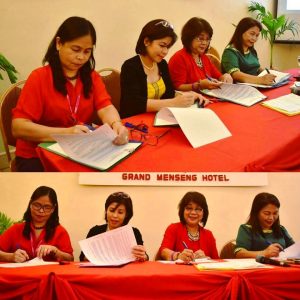
The Department of Social Welfare and Development (DSWD) and the Davao City local government unit (LGU) recently signed a Memorandum of Agreement (MOA) for the pilot implementation of Buklod Paglaom para sa Children in Conflict with the Law (CICL) and the Comprehensive Program for Children and Families at Risk on the Streets.
These programs were conceptualized by the Social Technology Bureau (STB) of the DSWD to address the social protection needs of CICL and street families.
Hope for CICL
Buklod sa Paglaom para sa CICL or the Holistic Psychosocial and Economic (HOPE) Intervention for CICL provides a range of services combining center and community based interventions.
Restorative justice for CICL is the working principle of the program, giving more help to the child to change, rehabilitate, and have opportunities to become productive members of society rather than focusing on retribution.
The program will include 12-15 year old CICL, as well as their families and the communities where they belong.
Through the program, CICL are expected to develop and maintain positive and acceptable behavior while their families are taught to become responsive to their need for support and protection. Likewise, community members are equipped to become responsible in preventing juvenile delinquency.
This newly developed program is in compliance with Republic Act (RA) No. 9344 as amended by RA No. 10630 or the Juvenile Justice Welfare Act, which specifically mandates government to provide special focus to the needs of the CICL.
DSWD Secretary Judy M. Taguiwalo said, “CICL must be given all the assistance which government can provide to help them be rehabilitated and achieve a better future. Oftentimes, these children are also victims of their circumstances. Hindi natin dapat pabayaang manatili sila sa kanilang mga kinalalagyan. Kailangan nila ng tamang gabay at hindi parusang panghabang-buhay nilang pagdudusahan (We should not abandon them in their present situation. These CICL need guidance and not punishment that would traumatize them for the rest of their lives).”
Protection for street families
From September to October 2015, the DSWD conducted a rapid appraisal of street children/street families in Davao City which recorded 374 children, 117 families and 169 individuals considered to be at risk on the street.
As a result of the appraisal, the DSWD conceptualized the Comprehensive Program for Children and Families at Risk on the Streets for pilot implementation in the city.
Under the program, street families/children in the city will be provided with various services to include the establishment of activity centers for children; group work sessions with the children and their families; and, provision of homelife supplies, hot meals, cash for work, livelihood assistance, and financial literacy, among others. All these are aimed at eventually taking them off the streets.
“DSWD is grateful to Davao City LGU for accepting these programs and for their commitment to care for the CICL and the street dwellers. Providing vulnerable sectors with social protection is the responsibility of the government, both at the local and national level, in partnership with the private sector. We must work hand in hand to ensure that we can make a change in the lives of the poor through genuine and compassionate public service,” Sec. Taguiwalo said.
The DSWD will assess the effectiveness of the two programs after one year of pilot testing and will subsequently replicate these in other LGUs nationwide next year. ###


